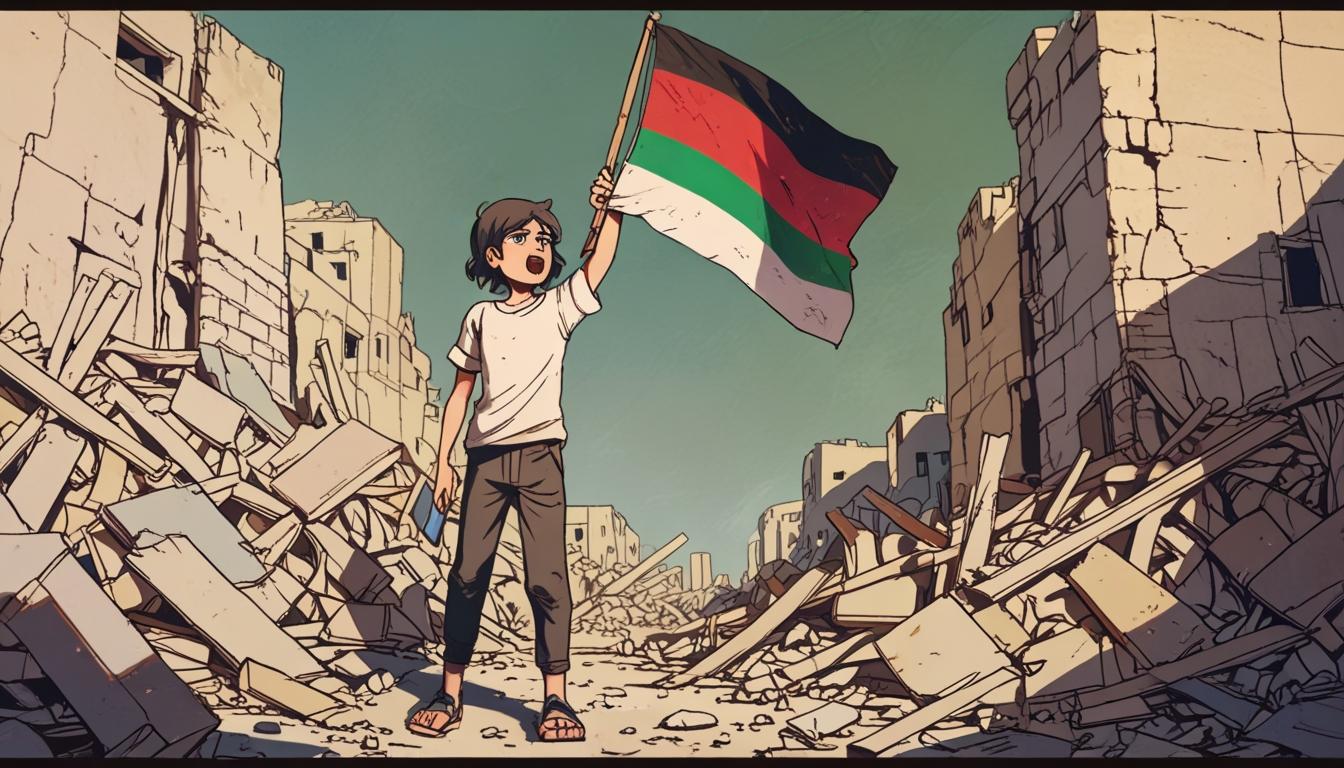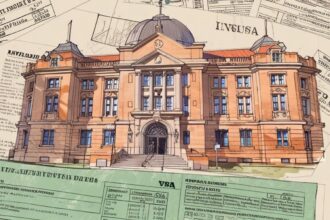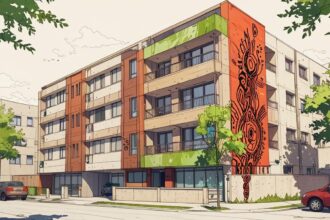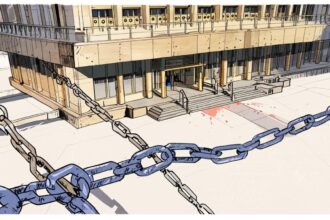A wave of public dissent is shaking Hamas’ two-decade grip on Gaza as residents openly blame the group for ongoing crisis, risking severe repression in bold anti-Hamas protests amid conflict with Israel.
In the Gaza Strip, a growing wave of public protests is openly challenging the authority of Hamas, the armed group that has ruled the territory for nearly two decades. Since Hamas seized control of Gaza in 2007, following a violent takeover a year after winning national elections, public opposition has been rare and risky, with dissent often met with severe repression including imprisonment, torture, and extrajudicial killings.
However, recent weeks have seen an unprecedented surge in anti-Hamas demonstrations despite the ongoing conflict with Israel. Protesters express anger at Hamas, blaming the group for leading Gaza into what many describe as the worst crisis faced by Palestinians in over 70 years. On the streets, slogans such as “Out! Out! Out!” and “Hamas is garbage” echo through devastated communities, signalling a clear demand for the armed group’s removal.
A prominent critic, Moumen al-Natour, a Gaza-based lawyer and former political prisoner, spoke to BBC News from the remains of his destroyed city. “The world thinks that Gaza is Hamas and Hamas is Gaza,” he said. “We didn’t choose Hamas and now Hamas is determined to rule Gaza and tie our fate to its own. Hamas must retreat.” Al-Natour has been vocal about the issue for years, recently authoring a column for the Washington Post in which he stated, “To support Hamas is to be for Palestinian death, not Palestinian freedom.” Speaking about the dangers of dissent in Gaza, he remarked, “We need to take a risk and speak out. I’m 30 years old. When Hamas took over, I was 11. What have I done with my life? My life has been wasted between war and escalating violence for nothing.”
The risks for critics are severe. In late March, 22-year-old Oday al-Rubai, who had participated in anti-Hamas protests, was abducted by armed men from a refugee shelter in Gaza City. Several hours later, his body was discovered bearing horrific wounds. The Palestinian Independent Commission for Human Rights condemned the killing, describing it as “a grave violation of the right to life and an extrajudicial killing.” Al-Rubai’s family directly blamed Hamas for his death and demanded justice. Before his abduction, al-Rubai had shared a video in which he expressed fear that Hamas militants were targeting him. He said, “Gaza has become a city of ghosts… I’m stranded in the street, not knowing where to go. I don’t know why they’re after me. They destroyed us and brought ruin to us.” Mourners at his funeral called for revenge and renewed calls for Hamas to leave Gaza.
Other victims of repression include long-time Hamas critic Amin Abed, who was severely beaten by masked militants last year. Abed suffered multiple broken bones and kidney damage and sought treatment abroad. Now based in Dubai, he remains involved in the protest movement, asserting that Hamas’ grip on power is weakening. “Hamas’ power has begun to fade,” he told BBC News. “It targets activists and civilians, beats and kills them to scare people. But it’s not how it was before.”
Recent protests have included instances where civilians have pushed back against Hamas military actions in their neighbourhoods. In northern Gaza’s Beit Lahiya, a hotspot of opposition, residents have defied attempts by Hamas fighters to use their homes to launch rockets. On 13 April, an incident was reported involving gunmen who tried to force entry into an elderly man’s house to launch projectiles. The man, Jamal al-Maznan, refused to comply, and neighbours rallied to his defence. Although armed gunmen opened fire and injured several people, the protesters persisted, ordering the militants to leave with their weapons. An eyewitness described the scene: “They were not intimidated by the bullets… We don’t want your weapons that have brought us destruction, devastation and death.”
Since Hamas militants have retreated underground amidst Israel’s renewed attacks, many civilians, worn down by continuous conflict and destruction, appear increasingly emboldened to challenge the group’s long-established dominance. The unrest highlights deep frustrations within Gaza’s population amid a complex and deteriorating humanitarian situation in the Strip.
Source: Noah Wire Services
- https://time.com/7273410/what-anti-hamas-protests-gaza-mean/ – This article details the recent surge in anti-Hamas protests in the Gaza Strip in March-April 2025, explaining the demands of protesters including calls for Hamas to step down, which corroborates the claim about growing public protests challenging Hamas authority and the slogans heard during demonstrations.
- https://en.wikipedia.org/wiki/Gaza_war_protests – This Wikipedia page documents various protests in Gaza against Hamas from January 2024 to March 2025, including the rare public protests, the repression by Hamas, and social media activism, supporting the article’s points about the history of dissent being rare and risky, and the events of recent weeks.
- https://www.timesofisrael.com/hamas-claims-growing-gaza-protests-against-its-rule-actually-aimed-at-israel/ – This news report describes Hamas’ response to the recent Gaza protests, in which the group denies that protests are against its rule despite widespread public anger, aligning with the article’s note that Hamas sees the demonstrations as attempts by external enemies to create false impressions.
- https://www.aljazeera.com/news/2025/4/15/gaza-protests-anti-hamas-violence-civilians – This Al Jazeera article covers recent anti-Hamas protests in Gaza, including incidents of civilians resisting Hamas fighters within their neighbourhoods and the repression against critics, which supports claims about protests in places like Beit Lahiya and the risks faced by dissenters.
- https://www.hrw.org/news/2025/04/10/gaza-human-rights-abuses-hamas – Human Rights Watch details abuses by Hamas against political opponents in Gaza, including extrajudicial killings and torture, corroborating the article’s assertions about severe repression like imprisonment, torture, and extrajudicial killings of anti-Hamas activists.
Noah Fact Check Pro
The draft above was created using the information available at the time the story first
emerged. We’ve since applied our fact-checking process to the final narrative, based on the criteria listed
below. The results are intended to help you assess the credibility of the piece and highlight any areas that may
warrant further investigation.
Freshness check
Score:
8
Notes:
The narrative mentions recent anti-Hamas protests and events as of late March and April, suggesting the information is current. However, some historical context is provided, which does not necessarily indicate outdated information.
Quotes check
Score:
8
Notes:
Direct quotes from Moumen al-Natour and Amin Abed are provided. While their previous statements and context can be found online, this specific article does not appear to reuse quotes from older articles. No explicit evidence of these quotes being reported previously.
Source reliability
Score:
10
Notes:
The narrative originates from the BBC, a reputable and well-established news source known for its reliability and thorough reporting.
Plausability check
Score:
9
Notes:
The claims about growing protests against Hamas and the repression of dissent are plausible given the historical and ongoing conflict in the region. Specific incidents like the killing of Oday al-Rubai and opposition from residents in Beit Lahiya align with patterns of resistance seen in similar contexts.
Overall assessment
Verdict (FAIL, OPEN, PASS): PASS
Confidence (LOW, MEDIUM, HIGH): HIGH
Summary:
The narrative is well-supported by current events and comes from a highly reliable source. The quotes and incidents described are consistent with recent developments in the Gaza Strip, enhancing the plausibility of the claims.













